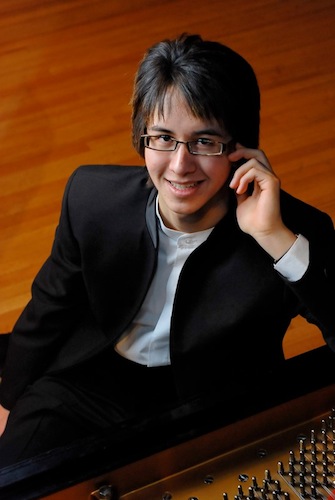Lockhart, BBC Concert Orchestra make mixed impression in Miami

Keith Lockhart conducted the BBC Concert Orchestra Wednesday night at the Arsht Center. Photo: Michael Lutch
British orchestras bring a special idiomatic affinity to the music of their native composers and the best moments of the BBC Concert Orchestra’s program Wednesday night at Miami’s Arsht Center found the 64-member ensemble playing works by their compatriots. The orchestra, founded in 1952, is a uniquely English creation. Created for radio work and BBC concerts, the ensemble hovers somewhere between a symphonic and pops orchestra and, at various times, plays both roles.
American conductor Keith Lockhart has helmed the orchestra since 2010. Best known for his work with the Boston Pops over the past two decades, Lockhart proved most comfortable in the spirited and lyrical English works on the program. Opening with Ralph Vaughan Williams’ The Wasps Overture, Lockhart captured both the jaunty and stately moods of this lively curtain raiser, composed for a Cambridge University production of Aristophanes’ satirical play. In the central episode, concertmaster Charles Mutter’s lovely solo over harp strokes nicely contrasted with the rapid opening and closing sections.
George Butterworth’s orchestral rhapsody A Shropshire Lad mines the English pastoral tradition, an expressive portrait of the countryside. Like his friend and mentor Vaughan Williams, Butterworth collected and incorporated rural folk song elements in his work. Lockhart drew out the big climaxes and did not allow the music to plod. The orchestra’s fine wind section was well balanced with the strings’ lustrous textures.
Unfortunately the score’s quiet ending, as the music fades to silence, was spoiled by a ringing cell phone. Lockhart’s spoken introduction, in which he told of Butterworth’s tragic death at age 31 in the Battle of the Somme, was incomprehensible to most of the audience due to a tinny amplification system replete with echo. Can’t Miami’s major concert hall provide visiting artists with a sound system that is clear and audible?
Charlie Albright was the soloist in Shostakovich’s lightweight Piano Concerto No. 2 in F Major. A winner of multiple awards, the boyish-looking pianist displayed strong technique but got off to a slow start, his tempo and phrasing foursquare in the manic romp of the first movement. The sarcasm in Shostakovich’s writing was largely absent in Albright and Lockhart’s sedate approach. At times Albright’s light touch was overpowered by the orchestra.
The sentimentality of the Andante, which almost sounds like Rachmaninoff, suited Albright’s lyrical bent. He imbued the long melodic lines, similar to some of Shostakovich’s film music, with a fine variety of dynamics and tonal colors. Albright belatedly brought some steely heft to enhance the careful accuracy of his playing in the witty, vaudevillian finale.
For his encore, Albright did an improvisation on notes and chords called out by members of the audience. The result was vaguely Russian sounding and allowed Albright to display sheer power and volume but the stunt went on way too long and quickly wore out its welcome.
Some blurred wind lines apart, the BBC Orchestra was in great form in Dvorák’s Symphony No. 8 in G Major. The resonant cello theme of the opening and vibrant trumpet calls that introduce the finale were splendidly rendered.
Unfortunately, Lockhart’s heavy-handed conducting robbed the music of its bucolic verve. The Adagio was slow to the point of solemnity and the Allegro grazioso third movement sounded bland and unvaried in tone. A hard-thumping finale with overstated brassy climaxes inclined toward vulgarity.
Two movements (“Pieds-en-l’air” and “Sword Dance”) from Peter Warlock’s Capriol Suite offered a sprightly encore, played with vigor and style.
